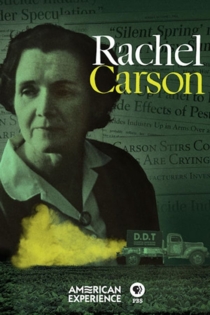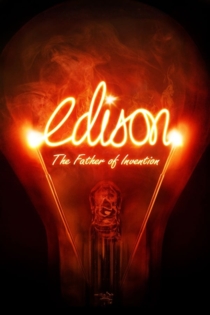
Michelle Ferrari
2021The Vote: Part 1
Michelle Ferrari
Kate Burton, Patricia Clarkson
100 years after the 19th Amendment passed, The Vote tells the dramatic story of the hard-fought and transformative campaign waged by American women for the right to vote, resulting in the largest expansion of voting rights in U.S. history.
The Vote: Part 1

The Eugenics Crusade
Michelle Ferrari
Corey Stoll
The Eugenics Crusade tells the story of the eugenics movement and its long history in the United States, from its beginnings in the study of heredity, to its rise as a popular movement promising to uplift the human race through state sponsored sterilization, to its influence on immigration laws designed to close our borders to groups deemed genetically inferior.
The Eugenics Crusade

American Experience: Rachel Carson
Michelle Ferrari
Oliver Platt
RACHEL CARSON is an intimate portrait of the woman whose groundbreaking books revolutionized our relationship to the natural world. When Silent Spring was published in September 1962 it became an instant bestseller and would go on to spark dramatic changes in the way the government regulated pesticides.
Rachel Carson

Sandra Day O'Connor: The First
Michelle Ferrari
Kate Burton
When Ronald Reagan nominated Sandra Day O’Connor as the Supreme Court’s first female justice in 1981, the announcement dominated the news. Time Magazine’s cover proclaimed “Justice At Last,” and she received unanimous Senate approval. Born in 1930 in El Paso, Texas, O’Connor grew up on a cattle ranch in Arizona in an era when women were expected to become homemakers. After graduating near the top of her class at Stanford Law School, she could not convince a single law firm to interview her, so she turned to volunteer work and public service. A Republican, she served two terms in the Arizona state senate, then became a judge on the state court of appeals. During her 25 years on the Supreme Court, O’Connor was the critical swing vote on cases involving some of the 20th century’s most controversial issues. Forty years after her confirmation, this biography recounts the life of a pioneering woman who both reflected and shaped an era.
Sandra Day O'Connor: The First

Edison
Michelle Ferrari
Michael Murphy, Thomas A. Edison
By the time he died in 1931, Thomas Alva Edison was one of the most famous men in the world. The holder of more patents than any other inventor in history, Edison had achieved glory as the genius behind such revolutionary inventions as sound recording, motion pictures, and electric light. Born on the threshold of America's burgeoning industrial empire, Edison's curiosity led him to its cutting edge. With just three months of formal schooling, he took on one seemingly impossible technical challenge after another, and through intuition, persistence, and a unique team approach to innovation, invariably solved it. Driven and intensely competitive, Edison was often neglectful in his private life and could be ruthless in business. Challenged by competition in the industry he'd founded, Edison launched an ugly propaganda campaign against his rivals, and used his credibility as an electrical expert to help ensure that high-voltage electrocution became a form of capital punishment.
Edison
